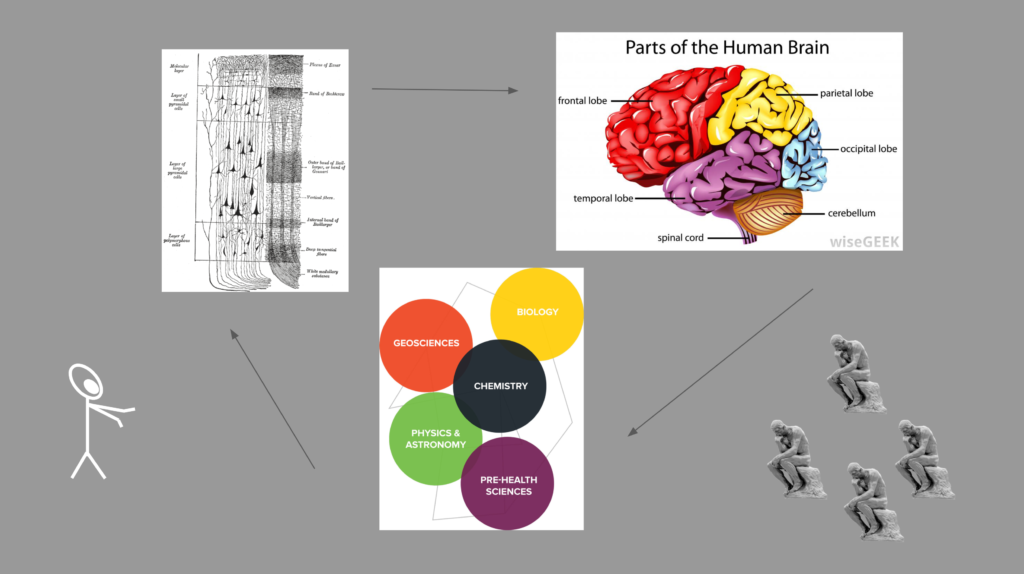
Synaptic plasticity [1] and the ability of the neocortex to redistribute functions between regions, also called brain plasticity [2], must be related to learning.
The more frequent and sustained overtime some types of interactions are, more cortical columns [3] and thus neurons and other brain parts are eventually recruited to perform those functions. The opposite occurs when the interactions are less frequent and less sustained overtime.
For example, the more musical experience, the more brain volume must be dedicated to music. The same with more math, physics, philosophy, history, civics, and so on.
The fact many people forget a lot of what they learned in elementary, middle, and high school [4] must be because the emphasis in education is in exposing the information about many topics, from hard to soft sciences, and forcing temporary memorization and practice exercises and then jumping to new subjects.
Perhaps, a better method could be to expose kids to less subjects for the twelve years, maybe the ones that are the least natural to the brain, and more repetition and affirmation of the same subjects.
A syllabus for a twelve year program could be centered around physics, chemistry, biology, geography, math, and writing, together with the modern tools used to manage and compute those subjects, but leaving all the speculative sciences, e.g. humanities and arts, and sports for kids to learn and practice by themselves with their parents exposing them to those if they wish.
The idea is that with less subjects but more repetition and consistency overtime, the math and natural sciences would perhaps be better learned and gain more staying power in the brain. Especially because these things are not learned in typical day to day experiences.
However, because kids and parents are naturally social animals and interested in the arts and humanist subjects, they can learn those things outside of the curriculum, freeing time for the hard sciences, taking advantage of brain plasticity to affirm those disciplines deeper.
References
[1] Synaptic plasticity – by Wikipedia: https://en.wikipedia.org/wiki/Synaptic_plasticity
[2] Neuroplasticity – by Wikipedia: https://en.wikipedia.org/wiki/Neuroplasticity
[3] Neocortex – by Wikipedia: https://en.wikipedia.org/wiki/Neocortex
[4] Why You Forgot Everything You Learned In School – by Matt Grant – Urbo.com: https://www.urbo.com/content/why-you-forgot-everything-you-learned-in-school/